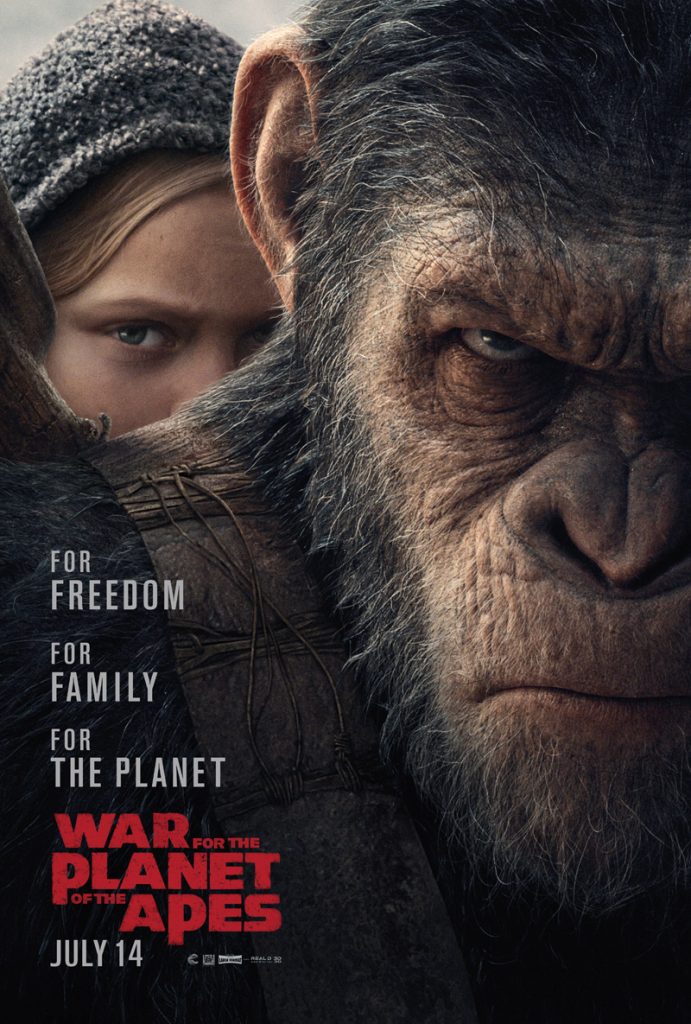
The Planet of the Apes prequel series was a trilogy that more or less snuck up on me in how great it’s been. After the poor reception of Tim Burton’s 2001 remake of the classic science fiction series, Rise and Dawn of the Planet of the Apes turned out to be an interesting and entertaining variation on the original canon. As opposed to setting its viewpoint to a human character like Burton’s film did (Mark Wahlberg is a fine actor, but his role wasn’t the most compelling), this current series has followed the perspective of Andy Serkis’s Caesar, over the course of his life from lab chimpanzee to the revolutionary leader of his people.
This is apparent in an early scene when other apes clear a pathway for Caesar as he greets his family, who are hoping to escape through a desert as soon as possible. The clan is being hunted by the military group Alpha-Omega, led by a maniacal figure known as The Colonel (Woody Harrelson). A failed raid from Colonel results in members of Caser’s family being killed, leading the ape leader to believe that the head of AO needs to be stopped to keep the other apes safe.
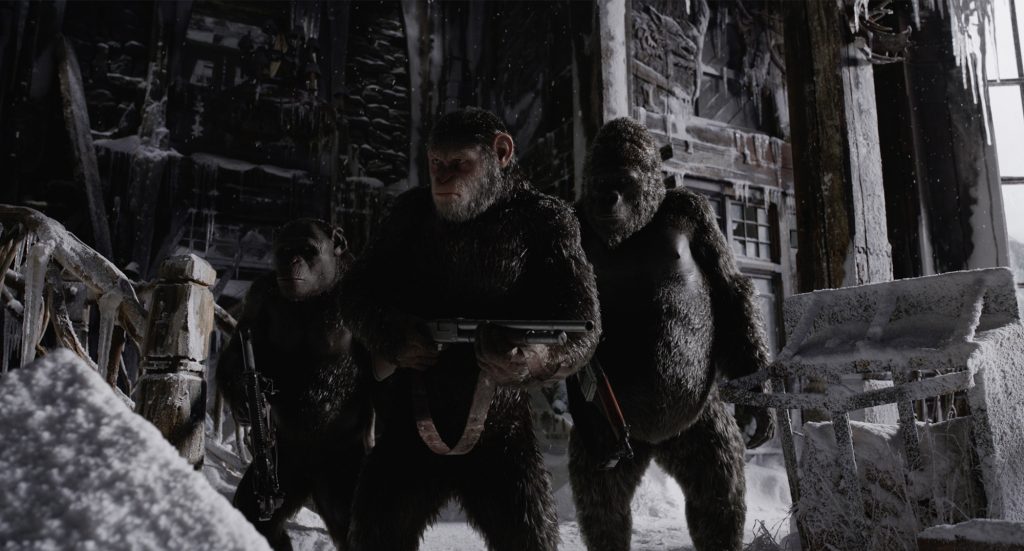
As excellent as the motion capture on the apes is, it’s the cast that carries the movie. This is one of Andy Serkis’s finest performances, conveying a wide variety of emotions as he helps narrates Caesar’s character evolution over the course of the film. He’s older with a bit of gray hair and tougher, but he also cares a good deal about his family and has an innate sense of compassion.
When tragedy strikes, this is at odds with a new desire for revenge. Considering himself a target, he tries to set out on his own to lure AO away from the clan, but poignantly his friends won’t abandon him and he reluctantly takes them along. Even though this is an uncompromising film, on top of its analogies, there’s an overarching theme regarding the power of empathy, and how it can resist cruelty.
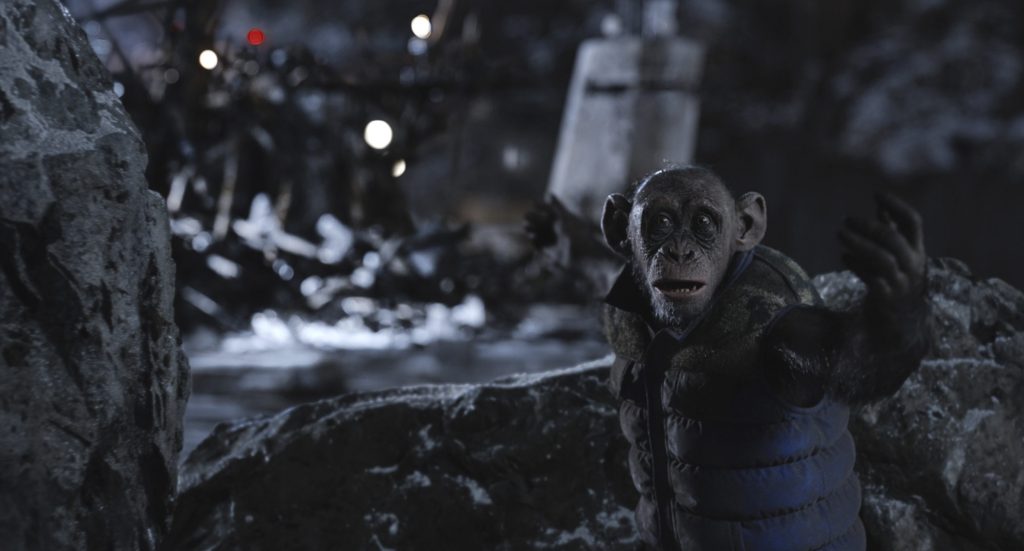
There are some sweet scenes involving Caesar’s orangutan friend Maurice (Karin Konoval) and a young girl the apes rescue, and thanks in part to some strong direction, they don’t feel at odds with some rather impressive action sequences. The opening is considerably effective in how it immediately puts the viewer in the middle of the conflict, with only some brief opening text on the screen in order to build up the tension. When the fighting starts, it’s hard not to quickly become emotionally invested.
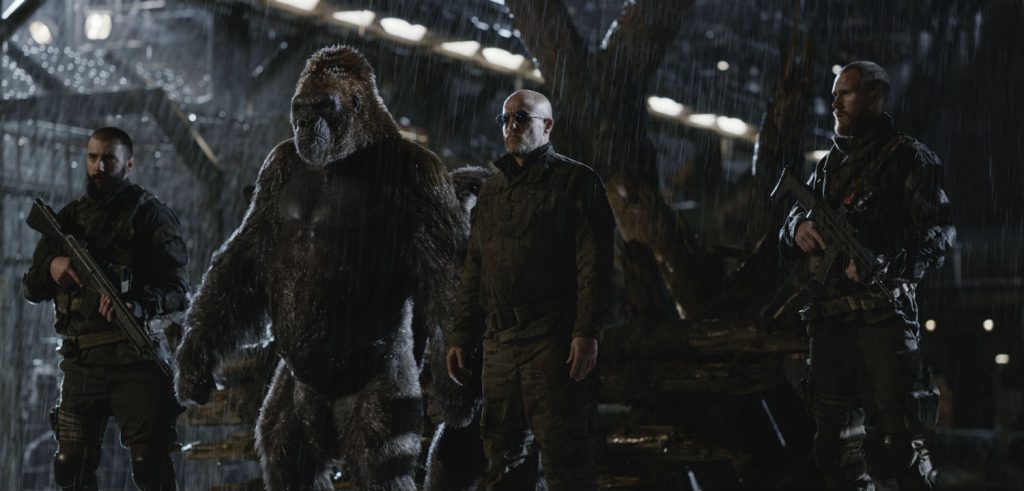
Serkis is the most memorable, but there’s a strong supporting cast behind Caesar who help strengthen the narrative. Zahn’s Bad Ape adds a fair amount of comic relief, but the filmmakers wisely never let the humor overwhelm the solemnness of the plot- this latest ape movie is primarily a serious meditation on the consequences of war, with political and perhaps even religious analogies weaved throughout the story.
Harrelson’s Colonel is an ideal foil for Caesar that forces the ape leader to confront his own inner demons. After a major plot revelation, Serkis gives Caesar an expression indicating that his heart’s obviously breaking.
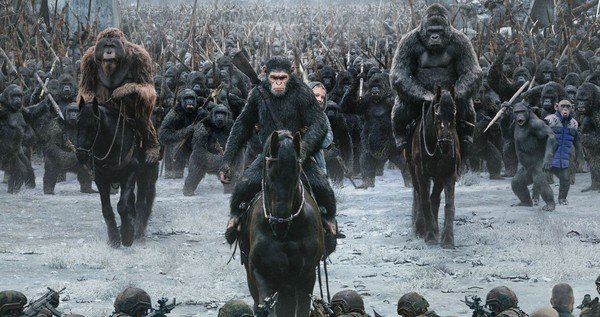
There is a danger for filmmakers in relying too much on CGI effects as opposed to acting ability and traditional techniques, but War for the Planet of the Apes is an entertaining blend of the old and the new in terms of using motion capture to enhance a great story. At times it’s a difficult watch, and aside from some brief (but usually well timed) comedic bits, its serious tone makes it a pretty unconventional summer movie. Nevertheless, it’s an emotionally affecting and intelligent climax to an entertaining, and in my opinion somewhat underrated, science fiction arc. Easily recommended.
